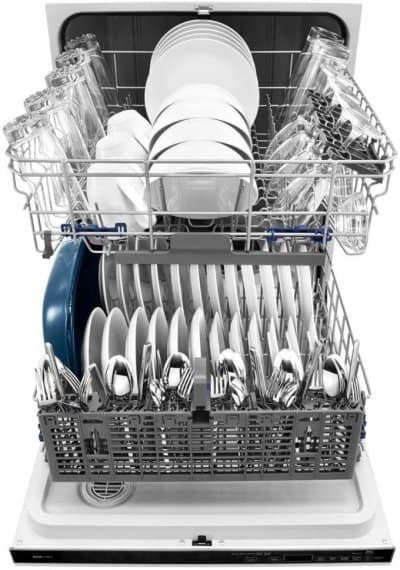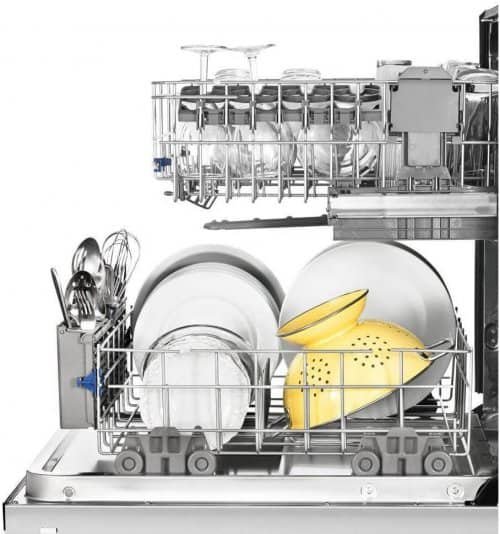Wine glasses are delicate and cherished items that require special care to maintain their elegance and functionality. When it comes to cleaning them, many people wonder if it is safe to place wine glasses on the bottom rack of the dishwasher. In this article, we will explore the best practices for washing wine glasses, discuss the advantages and disadvantages of using a dishwasher, and provide expert advice on how to properly care for your wine glasses.
Table of Contents
Can Wine Glasses Be Placed on the Bottom Rack?
Placing wine glasses on the bottom rack of the dishwasher can be risky due to the intensity of the water pressure and the proximity to other dishes and utensils. The bottom rack is subject to more vigorous water spray, which can cause the glasses to move around and potentially collide with other items, leading to breakage or damage.
Advantages of Using a Dishwasher
Using a dishwasher to clean wine glasses offers several advantages. Firstly, it saves time and effort, allowing you to focus on other tasks while your dishwasher handles the cleaning. Additionally, dishwashers often use hot water and steam, which can help eliminate bacteria and ensure a thorough clean. Lastly, dishwashers usually have designated glassware compartments on the top rack, providing a safer environment for delicate wine glasses.
Disadvantages of Using a Dishwasher
While dishwashers can be convenient, there are some disadvantages to consider when it comes to washing wine glasses. The intense water pressure and heat inside the dishwasher can pose a risk to fragile glassware, potentially leading to breakage or chips. Dishwashers also expose glasses to harsh detergents that may affect the appearance and taste of wine. Moreover, if the dishwasher is overcrowded, the glasses may not receive proper water circulation, resulting in inadequate cleaning.
Proper Care for Wine Glasses
To ensure the longevity and beauty of your wine glasses, it is essential to provide them with proper care. Handwashing is often recommended as the safest method, as it allows for more control over the cleaning process. When handwashing, use a mild dish soap and warm water, gently swirling the glass to remove any residue. Rinse the glasses thoroughly, taking care to remove all soap traces, as they can affect the taste and aroma of the wine.

Washing Wine Glasses by Hand
When washing wine glasses by hand, follow these steps for optimal cleanliness:
- Fill the sink or basin with warm water and a mild dish soap.
- Place the wine glasses in the water, one at a time, and gently swirl them to remove any dirt or stains.
- Pay special attention to the rim and base of the glasses, as these areas tend to collect residue.
- Rinse the glasses under running water to remove all soap traces.
- Use a lint-free cloth or air dry the glasses upside down on a clean, absorbent surface to prevent water spots.
Steps for Dishwasher-Safe Wine Glass Cleaning
If you choose to clean your wine glasses in the dishwasher, follow these steps to minimize the risk of damage:
- Ensure that the wine glasses are dishwasher-safe. Look for markings on the base of the glass indicating its suitability for dishwasher use.
- Load the glasses securely in the top rack of the dishwasher, spacing them apart to avoid contact during the cleaning process.
- Select a gentle dishwasher cycle, such as the “glass” or “delicate” setting, which uses lower water pressure and shorter wash cycles.
- Use a mild dishwasher detergent specifically formulated for glassware to prevent chemical reactions and maintain the clarity of the glasses.
- Avoid aggressive detergents, high-temperature settings, and pre-rinse cycles, as these can increase the risk of damage.
- Once the dishwasher cycle is complete, open the dishwasher door partially to allow the steam to escape gradually. This helps prevent thermal shock that can occur if the glasses are exposed to a sudden change in temperature.
Choosing the Right Dishwasher Cycle
Selecting the appropriate dishwasher cycle is crucial for maintaining the integrity of your wine glasses. Look for cycles labeled as “glass” or “delicate,” as these programs typically have lower water pressure and shorter durations, minimizing the risk of breakage. Avoid heavy-duty cycles or those designed for pots and pans, as they may subject your delicate glasses to excessive force.
Using Protective Measures
To further protect your wine glasses during the dishwasher cycle, consider using protective measures. Silicone stemware holders or flexible dishwasher racks can provide additional stability and cushioning. These accessories can help prevent glasses from colliding with each other or with the dishwasher’s internal components.
The Importance of Spacing
Proper spacing between wine glasses is essential to avoid any contact that could result in breakage or chipping. Ensure there is enough room between each glass so that water can circulate freely, allowing for thorough cleaning. Avoid overloading the dishwasher, as this can lead to inadequate cleaning and increase the risk of damage.
Avoiding Aggressive Detergents
When selecting a dishwasher detergent, opt for mild formulas specifically designed for glassware. Aggressive detergents that contain bleach or citrus additives can cause clouding or etching on wine glasses, compromising their clarity and appearance. Read the labels carefully and choose a detergent that is gentle and safe for delicate glassware.
Drying Techniques for Wine Glasses
After the dishwasher cycle is complete, it is important to dry the wine glasses properly. Using a lint-free cloth, gently dry the glasses, taking care to avoid any twisting or excessive pressure that could lead to breakage. Alternatively, you can let the glasses air dry upside down on a clean and absorbent surface to prevent water spots.
Storing Wine Glasses
Proper storage of wine glasses is crucial to maintain their quality and prevent damage. Store them in an upright position, either in a dedicated glassware cabinet or on open shelves where they won’t be disturbed. Avoid stacking glasses inside one another, as this can increase the risk of breakage or scratches.
Common Misconceptions About Dishwashers
There are a few common misconceptions about using dishwashers for cleaning wine glasses. Some people believe that the top rack is the only safe option for delicate glassware. However, placing wine glasses on the top rack can still subject them to potential breakage if they come into contact with other items or if the rack is overcrowded. Another misconception is that all wine glasses are dishwasher-safe. It is crucial to check for dishwasher-safe labels or indications on the glasses themselves to ensure their suitability for machine cleaning.
How to Spot Dishwasher-Safe Wine Glasses
To identify dishwasher-safe wine glasses, look for specific symbols or text on the base of the glassware. Manufacturers often use universally recognized icons, such as a glass with water droplets or the word “dishwasher safe.” These markings provide assurance that the glasses have been tested and deemed suitable for dishwasher use.
Can I put crystal wine glasses in the dishwasher?
It is generally not recommended to put crystal wine glasses in the dishwasher, as the intense heat, water pressure, and detergents can damage the delicate crystal material.
Are plastic wine glasses dishwasher-safe?
Many plastic wine glasses are dishwasher-safe, but it is advisable to check the manufacturer’s instructions to ensure their suitability for machine cleaning.
How often should I clean my wine glasses?
It is best to clean wine glasses after each use to remove any residue or aromas that may affect the taste of future wines.
Can I wash wine glasses in cold water?
While warm water is generally recommended for cleaning wine glasses, you can use cold water as long as it is combined with a mild dish soap for thorough cleaning.
How do I remove water spots from wine glasses?
To remove water spots from wine glasses, try soaking them in a mixture of equal parts white vinegar and water, then rinse and dry them thoroughly.
Conclusion
In conclusion, placing wine glasses on the bottom rack of the dishwasher is generally not recommended due to the increased risk of breakage or damage. While dishwashers offer convenience, it is crucial to prioritize the safety and longevity of your delicate glassware. Handwashing remains the preferred method for cleaning wine glasses, allowing for better control and protection. However, if you choose to use a dishwasher, follow the recommended steps, including using appropriate cycles, spacing the glasses, and selecting mild detergents. Remember to check for dishwasher-safe markings on the glasses themselves to ensure their suitability for machine cleaning.

